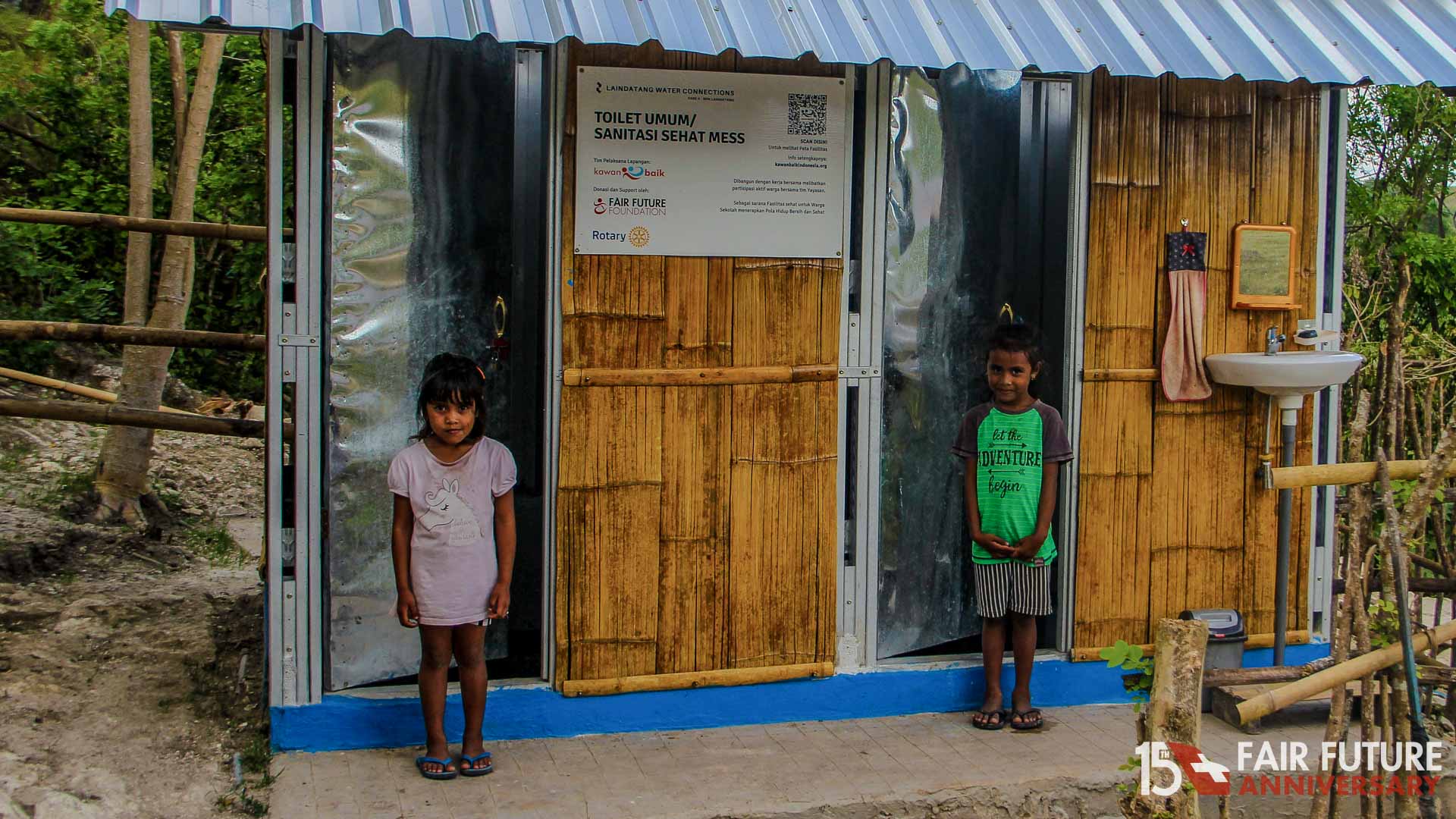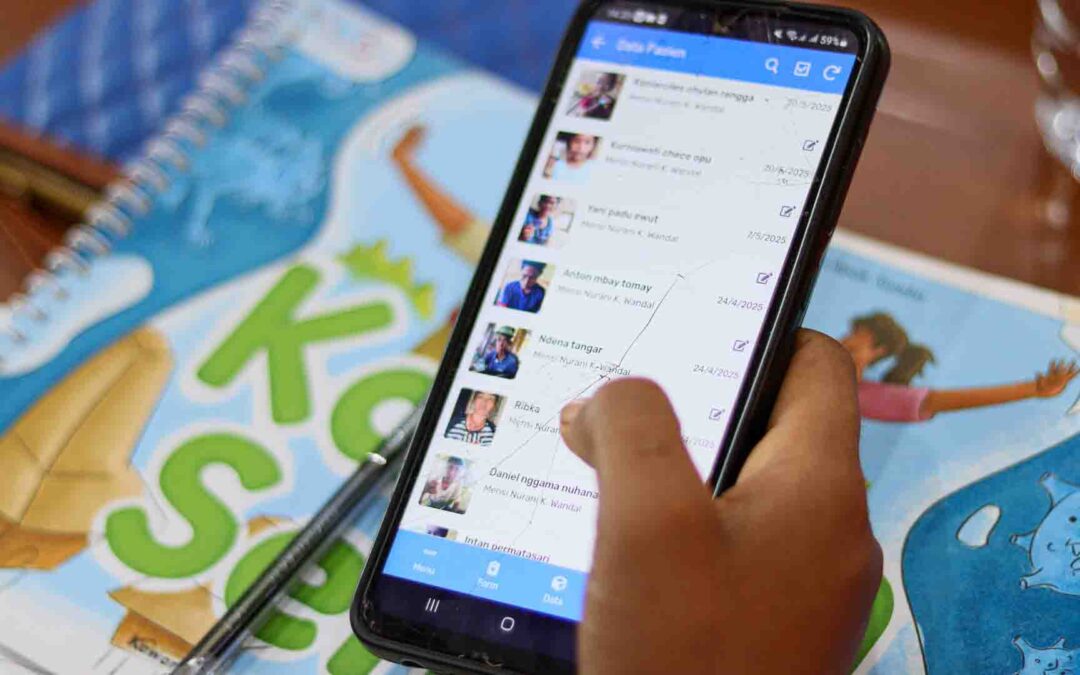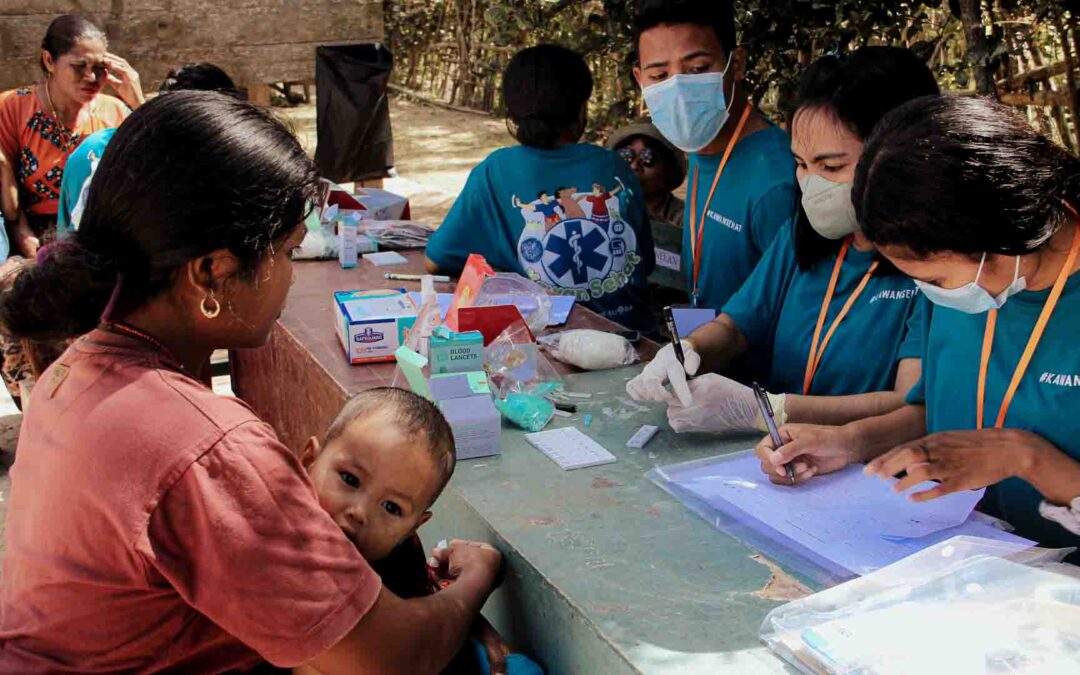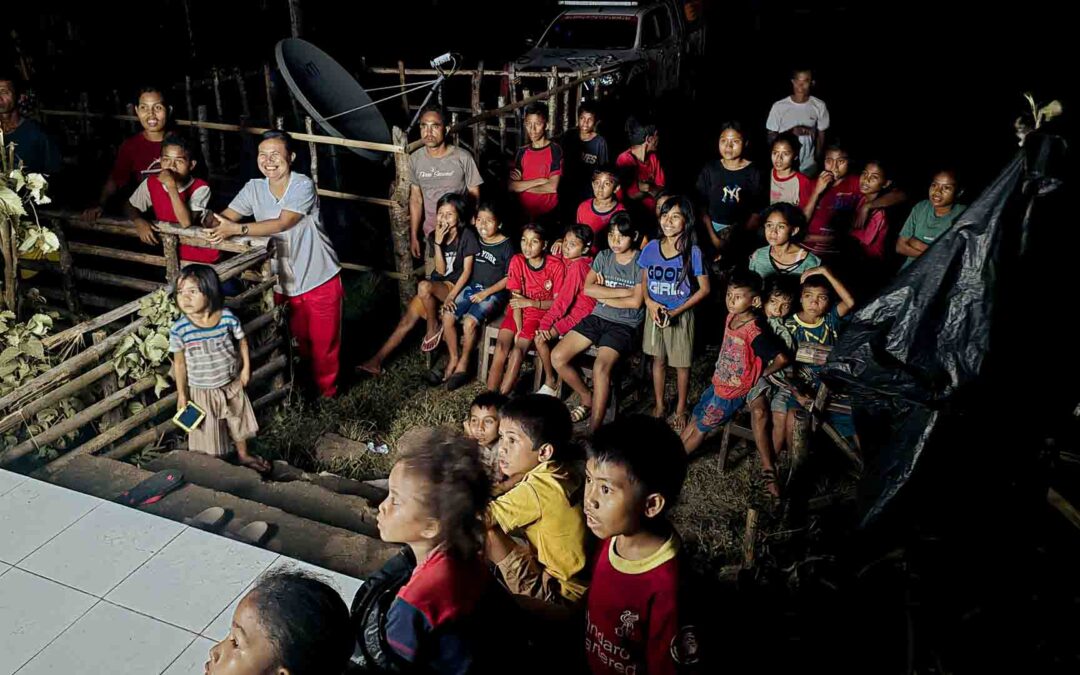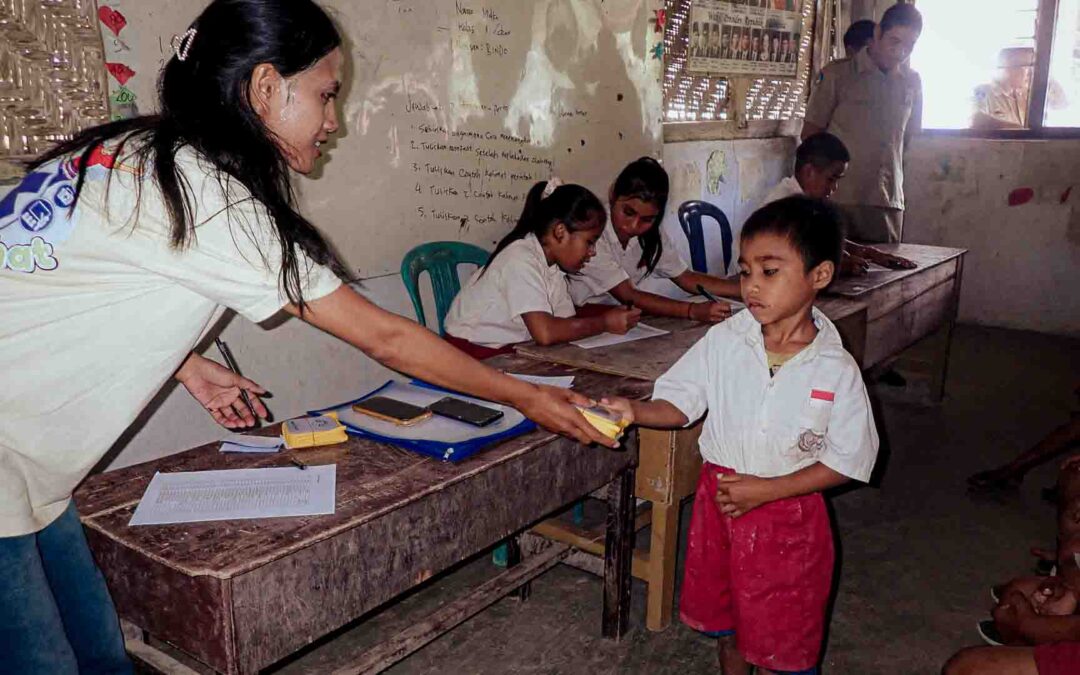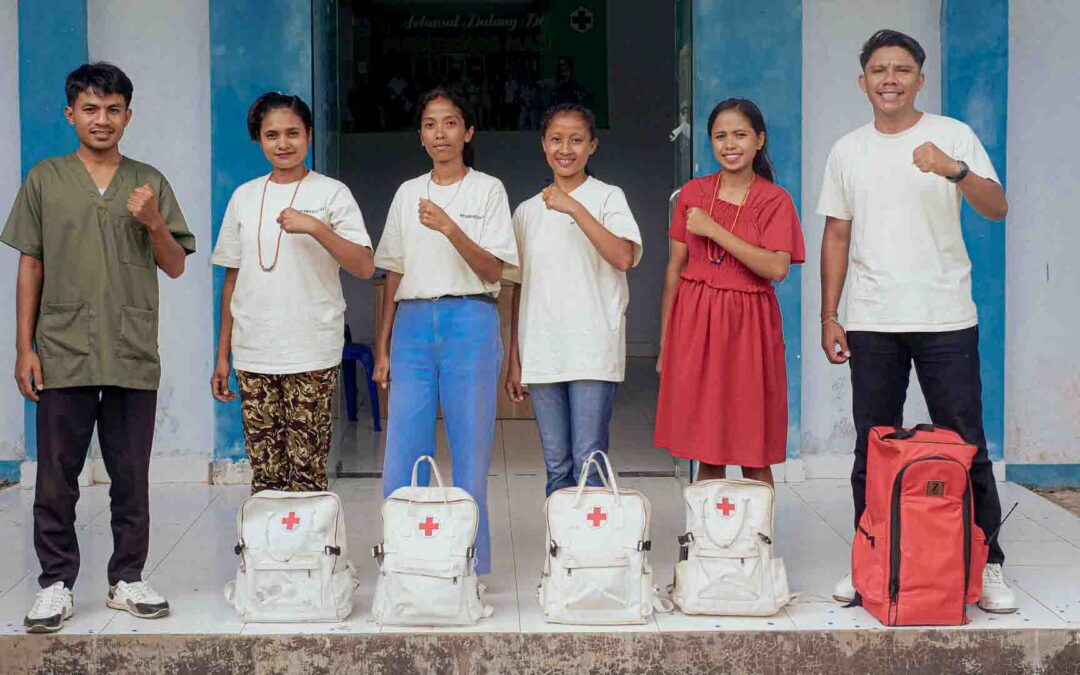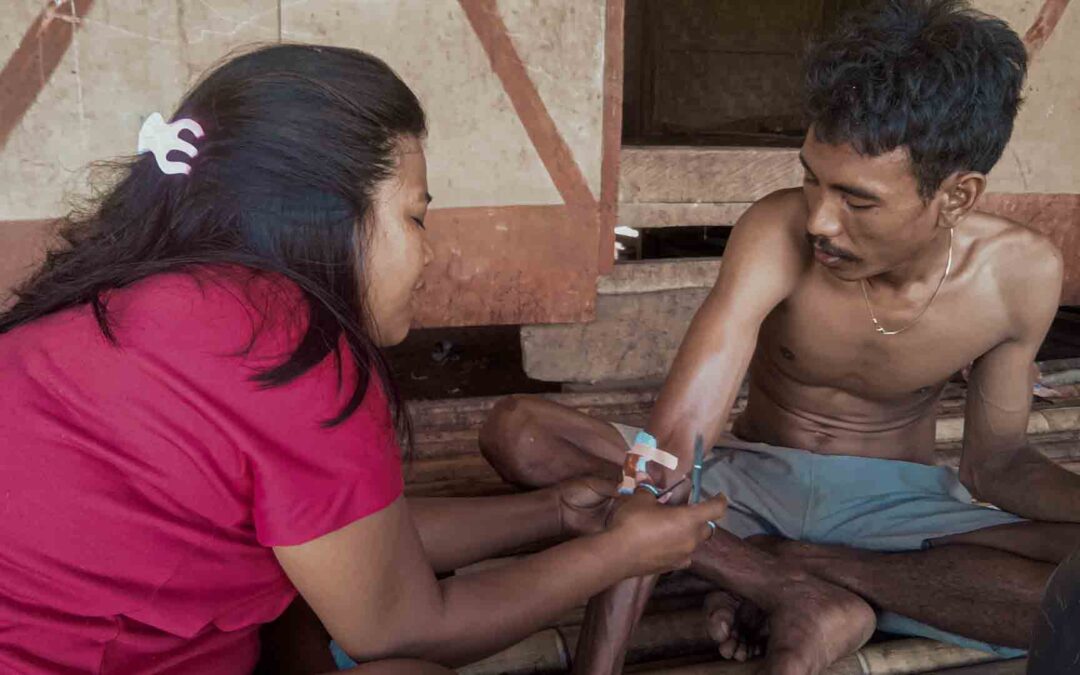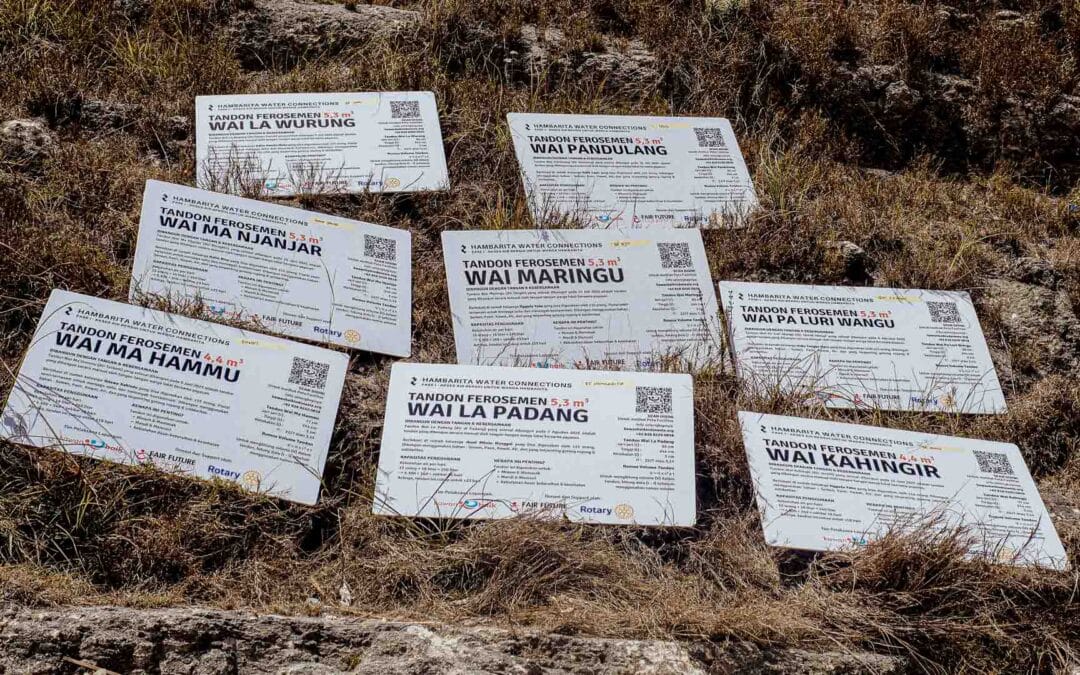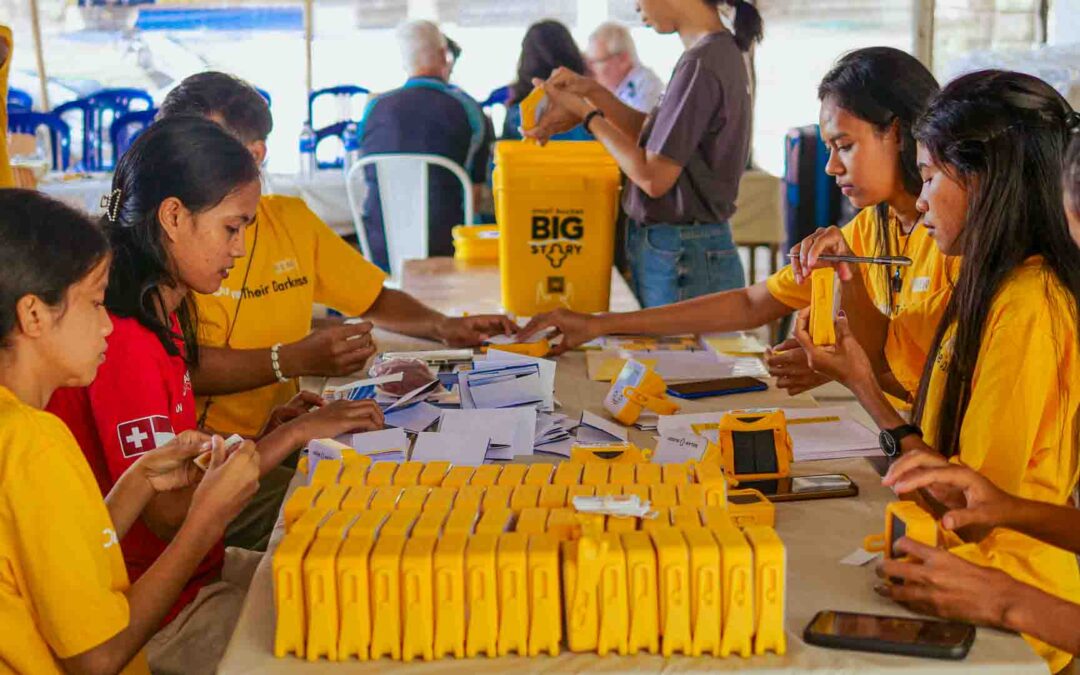Two young girls from a remote village in Eastern Sumba have discovered clean water and private toilets for the first time thanks to Fair Future’s Water Connections initiative. This initiative provides essential sanitation facilities, significantly reducing the spread of infectious diseases and enabling women and girls to attend school regularly and participate actively in community life.
This image is in 1920×1080 resolution. Click on it to enlarge and view at full size.
Empowering Women and Girls!
Our latest “Photo of the Day” features two girls, aged around ten years old, residing in a remote village in East Sumba. This area is isolated and lacks electrical infrastructure, roads, or proper medical care unless they participate in our Primary Medical Care program or contact our Truck Of Life for assistance. It should be noted that these young ladies had never had access to a toilet until this very moment when they could close an actual door behind them and take advantage of the sanitary provisions while finally washing their hands!
The Water Connections initiative includes clean water tanks with capacities of 5,000 and 10,000 liters, like those that Pak Kudu Huring and the villagers built with us here. It also involves ultra-deep drilling techniques and several kilometres of buried HDPE pipes to ensure a clean water supply for a healthy lifestyle, minimize infections, preserve lives, and save entire villages from dehydration-related problems.
The numerous toilets and sanitation facilities built by Fair Future and Kawan Baik in highly remote villages symbolise our tireless fight against diseases transmitted by contaminated water, inadequate sanitation and the absence of domestic toilets.
Clean water and sanitation are not luxuries but fundamental rights. Through the Water Connections program, we are empowering women and girls in remote villages, improving their health and restoring their dignity.” — Alex Wettstein, CEO and Founder of Fair Future
For the first time, they have access to clean water, which allows their parents to prepare nutritious meals from produce from their garden. A hygienic toilet is crucial for everyone’s well-being and safety when disposing of waste without risking health problems.
Providing clean and hygienic sanitation facilities profoundly impacts rural communities, significantly reducing the spread of infectious diseases such as Malaria, diarrhoea, typhoid fever and dysentery. Private toilets are essential for women and girls as they promote dignity and safety in maintaining personal hygiene – especially during their menstrual cycle or pregnancy. With access to proper sanitation facilities, the risk of recurrent illnesses caused by contaminated water decreases significantly, ensuring that children (especially girls) can attend school without interruption due to health problems.
Establishing health infrastructure improves individuals’ well-being and privacy. Drinking water and hygienic facilities that do not harbour disease-causing pathogens become accessible to families. This directly leads to a better quality of life, better health outcomes, and, therefore, the community’s overall well-being. Our goal, through the Water Connections initiative, is to ensure access to fundamental resources that support livelihoods and enrich healthcare delivery while ensuring positive prospects for tomorrow’s generations.
Fair Future Foundation medico-social camp in East Sumba – Rumah Kambera, Lambanapu – The 16th of July 2024.



